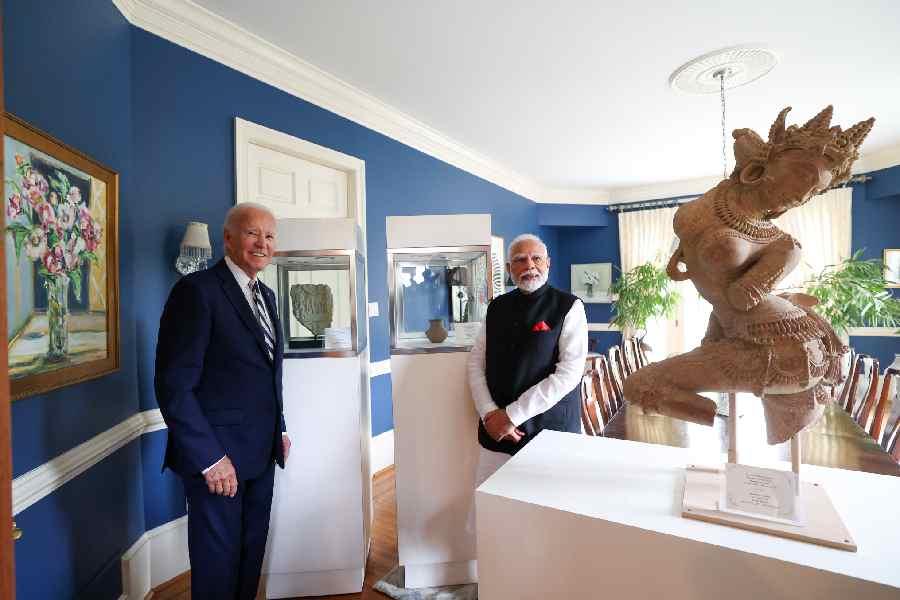The three-day visit to the United States of America by Prime Minister Narendra Modi served as an important opportunity for New Delhi to reaffirm its standing as a key member of larger collectives looking to shape the future of the world. Mr Modi joined the US president, Joe Biden, the Japanese prime minister, Fumio Kishida, and the Australian prime minister, Anthony Albanese, in Mr Biden’s hometown of Wilmington, Delaware, for a summit of the Quad grouping where the leaders committed to keeping their coalition intact. This, at a time when the US will have a new president soon and Japan a new prime minister, entrenching Mr Modi as the elder statesman of the grouping that the four democracies view as a critical pillar of shared efforts to counter China’s often aggressive postures in the Indo-Pacific region. In New York, Mr Modi used the sidelines of the United Nations General Assembly session to meet a range of world leaders. Among others, he met the Palestinian president, Mahmoud Abbas, whose standing within Palestine has taken a beating over his inability to do much to stop Israel’s war on Gaza. Mr Modi also met the Ukrainian president, Volodymyr Zelensky, for the third time in four months, committing India’s support for an end to Russia’s war on its neighbour.
Yet, amid all the diplomatic parleys and warm words — Eric Garcetti, the US ambassador to India, described Mr Modi as the most pro-US Indian prime minister and Mr Biden as the most pro-India president ever — there was evidence of an underlying uneasiness in the New Delhi-Washington relationship. Days before Mr Modi landed in the US, the former president, Donald Trump, who is the Republican nominee for the 2024 presidential election, claimed that the Indian prime minister would meet him during his visit. The ministry of external affairs said there was no such plan, and Mr Modi is not believed to have met Mr Trump. But it is hard to imagine Mr Trump making that claim without some communication between Mr Modi’s government and Mr Trump’s campaign. Two days after Mr Trump’s claim, Mr Biden’s White House hosted Sikh leaders from groups critical of India for its alleged attempts to assassinate separatists in the diaspora. Over the next few weeks, India will watch the electoral churn in the US closely. The bilateral relationship must not suffer because of the pursuit of short-term political gains. That is a responsibility the US and India share.










